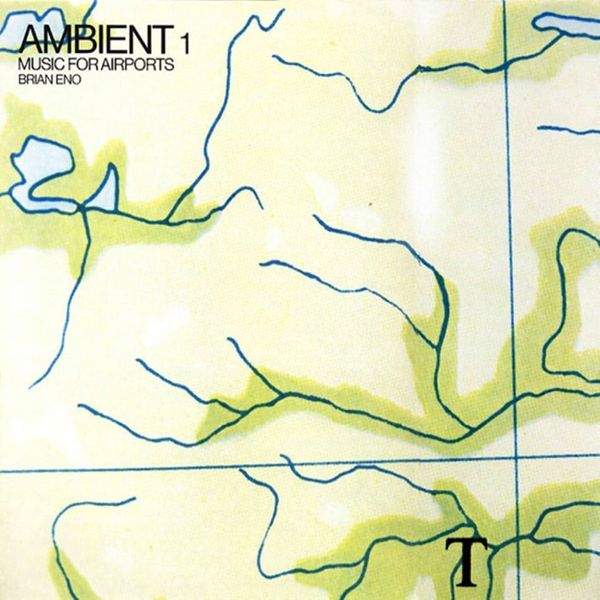André
Music has the Right to Children is ultimate background listening. I mean that in the most tremendous way possible. It functions exquisitely when you are listening intently, and when you are not. Boards of Canada’s debut record is so fluently splendid that it can be difficult to explain exactly why. It’s a milestone of electronic music for good reason. Never before had music of this aesthetic felt so organic, so human.
Maybe it’s the numerous vocal samples spread across the album; the sounds of seagulls on “Happy Cycling”; the public announcement on “One Very Important Thought”. These elements, and many more, lend the record a natural quality, as it propels beyond the habits and traditions of electronic music. Whereas Richard D. James Album feels like it was made with a computer in a basement on a cold winter night, Music Has the Right to Children feels like it was made with analogue synthesisers in a field on a warm spring morning.
Inspired greatly by the wonders of Brian Eno’s works, Boards of Canada are experts of texture. Music has the Right to Children is immaculately layered. It often seems like very little is happening, but the subtle details drive the music along. It’s constantly evolving. The rare moments of tranquility take your breath away; they feel important and momentous due to the vast textural contrast. Boards of Canada treat space and time with great care. It’s why, despite having been enamoured with the album for almost 10 years now, I’m still discovering aspects to appreciate.
Highlights shift with virtually every listen, though there is one particular song that will remain an all-time favourite. If I were to introduce a listener to electronic music with just one track, I’d present them with “Roygbiv”. It has the fundamentals nailed: beat, melody, and texture. It’s a truly joyous IDM anthem, and it encapsulates what Music Has the Right to Children is all about in less than three minutes.
The record remains a landmark of electronic music. It showed the skeptics that despite the multiple manufactured processes involved, the genre can portray genuine emotion and feeling. Not that it ever needed to be proven. Boards of Canada are nothing if not empirical evidence that electronic music is to be taken seriously. God fucking bless them.
9 out of 10
Fred
Some things are so well made that they make you appreciate the senses you use to experience them. A perfectly seasoned meal tickles taste buds you didn’t know existed; the right painting leaves you marvelling at the possibilities of colour and texture almost as much as at the painting itself; and a certain class of album delights by showcasing the breadth of sounds we’re capable of hearing. Music Has the Right to Children is one of those albums. If not always affecting, it’s unquestionably always stimulating. The production/vibe combo is too good not to engage with. It’s meticulous, assured, and completely under control. There are no soaring melodies or irresistible hooks here. They’re unnecessary. Instead, every moment is the sum of a thousand tiny polished parts.
Ambience isn’t the only thing in Music Has the Right to Children worth admiring, though it may be the most important. Dazzling as they sound, the more inactive tracks do keep me tethered. The record operates in a kind of meditative state, the sounds and arrangements flowing in and out of focus in a way that feels effortless and natural — and ever so slightly inconsequential. The album creates an answer to Ambient 1 in that sense. Most of the record leaves me entranced. When hard-edged tracks like “Sixtyten” and “Roygbiv” snap me out of it, I border on rapture. That balance is all that keeps me from falling head over heels for the record. Ultimately, the parts I love are outweighed by the spells where I’m deeply satisfied.
8 out of 10
Andrew
Boards of Canada make brilliant background music, and I say that as a statement of praise rather than disparagement. Ordinarily I’d use the term ‘background music’ to refer to something that vaguely sounds pleasant, remaining inoffensive and enjoyable to listen to for most of its length, but Boards of Canada do something different. They manage to produce music that develops slowly and is happy to sit in the background, while still remaining engaging, innovative and interesting throughout. Music Has the Right to Children is an excellent example of this too, and it easily does enough to hold a listeners attention throughout.
“Telephasic Workshop” and “Sixtyten” are great examples early on in the album. Both running around the six-minute mark, they begin with a simple, relatively sparse, rolling musical idea, until further layers of tightly cut samples trickle in, expanding across the top of the track. These samples smattered throughout the album are what guards the music from sounding mechanical, adding a human element to what are, in some cases, pretty tightly driven, insular beats. This is used to great effect in “Aquarius”, an eerie, other-worldly track only made more curious by its vocal samples. The album manages to remain intriguing throughout, lacking those moments where a theme outstays its welcome, or a filler track that pads out the album. It makes for fantastic listen. Production is top notch, and it’s clear that everything has been very purposely placed in the mix.
It’s hard to fault the album at all, but if I had to I’d go for the end, which feels a little muddled and a touch weaker, despite “Happy Cycling” being one the more memorable tracks from the album. Music Has the Right to Children is an exceptional entry in Boards of Canada’s very solid discography, and it fills a unique space that very few artists manage to pull off.
9 out of 10



